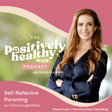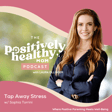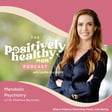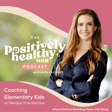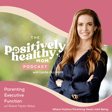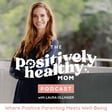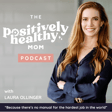
Pilates for Life
Welcome to The Positively Healthy Mom Podcast! I'm Laura Ollinger, and today, I’m thrilled to welcome Beth Sandlin, a Pilates expert dedicated to helping people live their best lives through Pilates. Beth is here to share her insights on how incorporating Pilates into your routine can enhance your overall well-being and bring balance to your life.
In this enlightening episode, Beth explores the transformative power of Pilates—not just as a workout, but as a tool for creating a healthier, more balanced lifestyle. Beth’s journey into Pilates began with a passion for fitness and wellness, and she’s made it her mission to help individuals of all ages and fitness levels experience the benefits of Pilates.
Beth guides us through practical Pilates techniques that are perfect for busy moms looking to integrate effective exercise into their daily routines. She covers everything from foundational exercises and proper form to creating a consistent practice that fits seamlessly into your schedule. Beth’s advice includes how to start with simple, accessible exercises and gradually build a routine that supports your fitness goals and personal needs.
For our listeners, Beth provides valuable tips on how to incorporate Pilates into family life, turning it into a fun and engaging activity for everyone. She shares how Pilates can help you build strength, flexibility, and resilience, all while reducing stress and improving your overall quality of life.
Beth’s journey is one of dedication and empowerment.
She and her family have embraced Pilates as a core component of their lifestyle, finding balance and fulfillment through this practice. Today, Beth offers Pilates classes and workshops, helping others to experience the same benefits and enhance their lives through mindful movement and exercise.
Key takeaways from this episode include:
- The impact of Pilates on physical and mental well-being and how it supports a balanced lifestyle.
- How to integrate Pilates into your daily routine and make it a family-friendly activity.
- Practical tips for staying consistent with your Pilates practice, even on busy days, and making it enjoyable.
- Building a sustainable fitness routine through Pilates and creating lasting habits for long-term health.
Join us for this insightful conversation and discover how Beth’s expertise and passion for Pilates can inspire and guide you toward a more balanced and fulfilling life.
The Positively Healthy Mom FB Group
